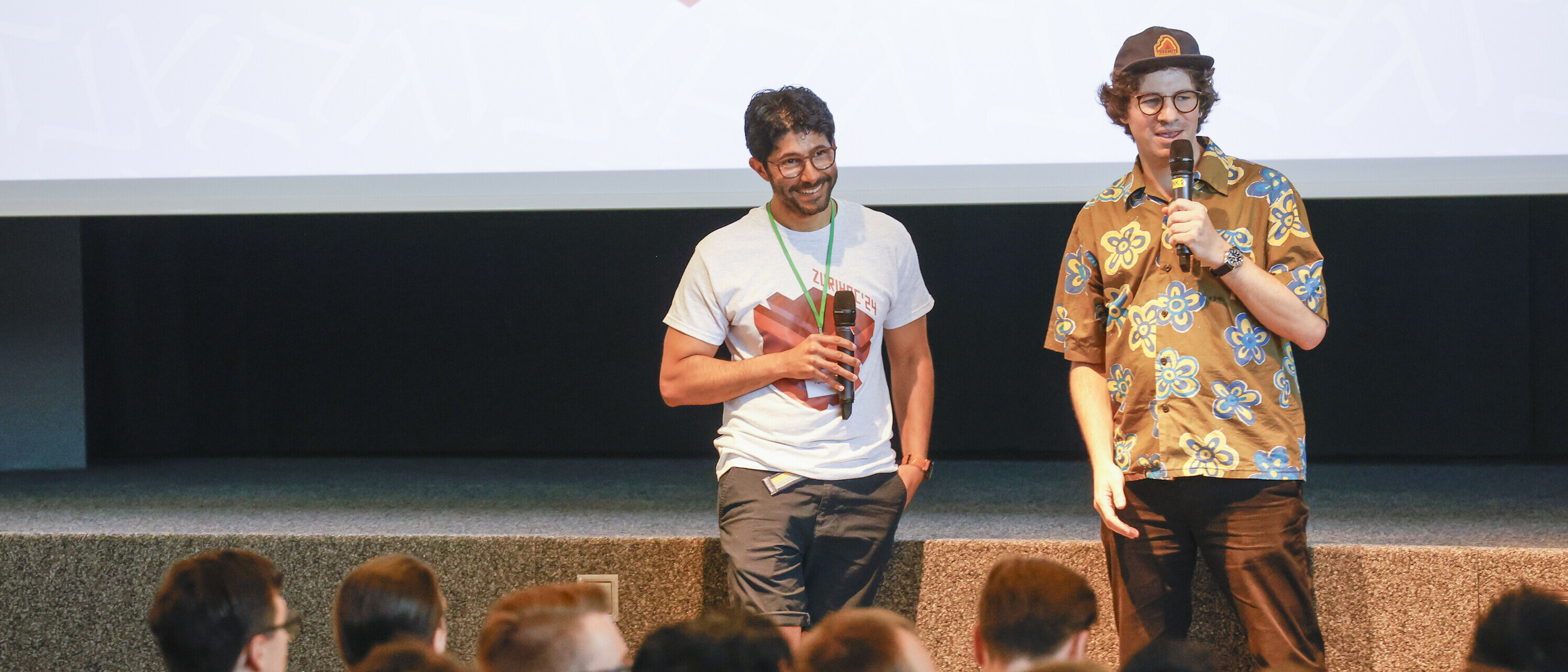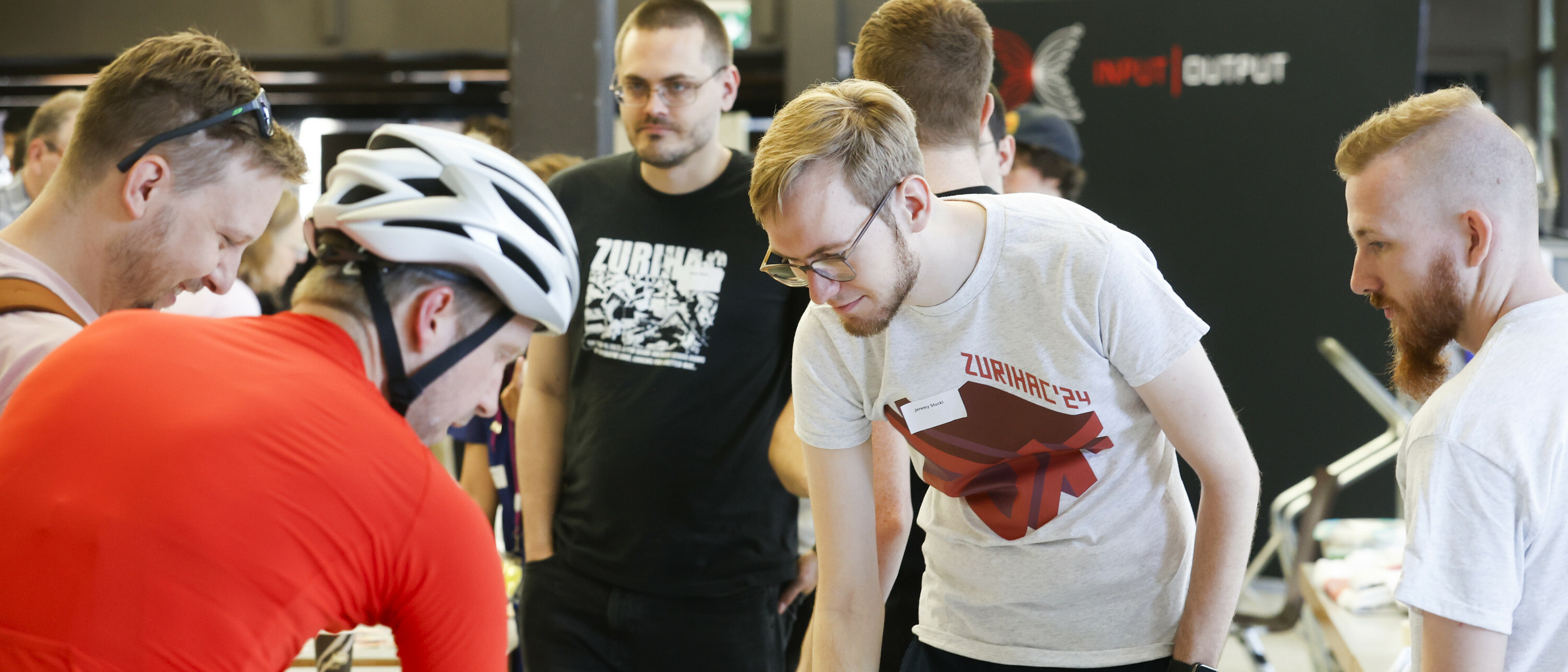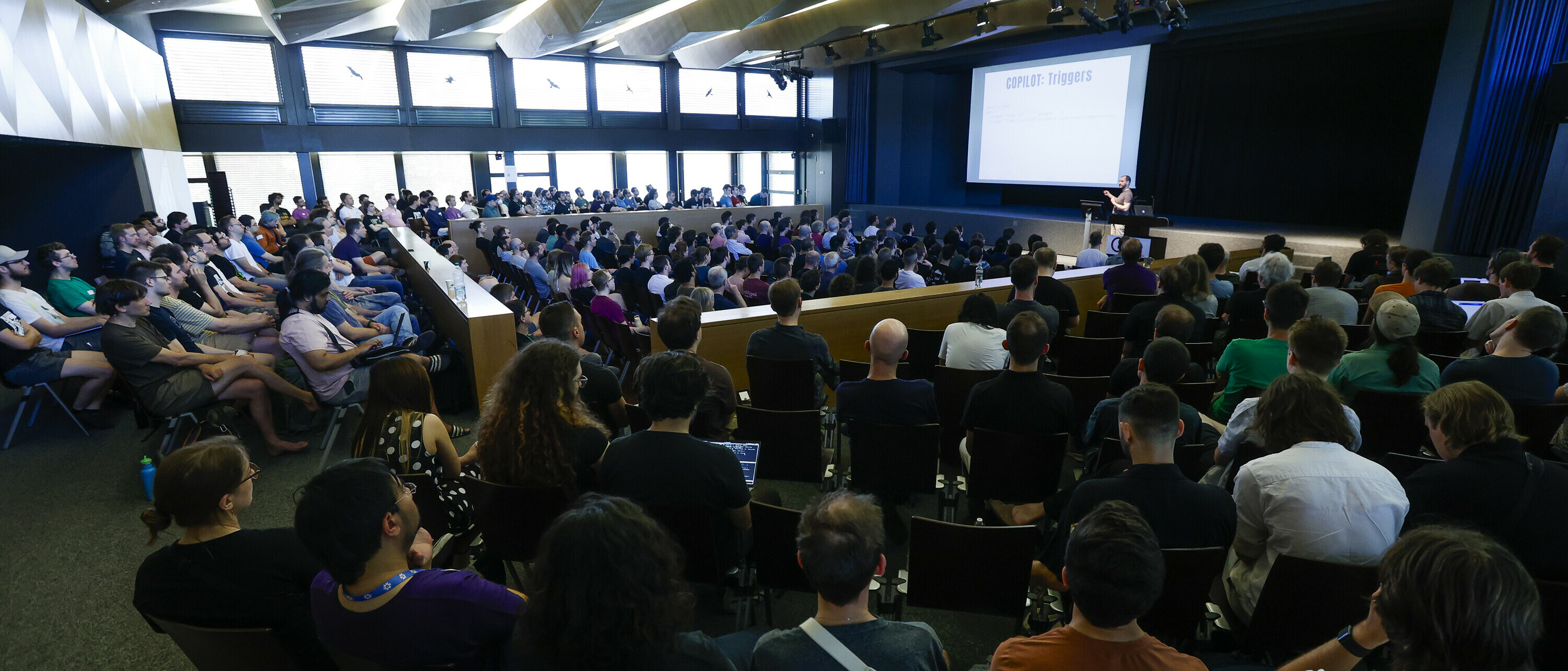ZuriHac is the world's largest practitioner's conference centred around the functional programming language Haskell. It has acquired somewhat of a cult status within the programming languages community, and features invited talks from leading experts from industry and academia, and hands-on beginners and advanced tracks.
Haskell is a general-purpose, statically-typed, pure functional programming language with type inference and lazy evaluation. Designed for teaching, research, and industrial applications, Haskell has pioneered a number of programming language features such as type classes and monadic input/output and has influenced many other programming languages. It is seen by many as one of the main vehicles for programming language research.
More than 400 people took part this year at ZuriHac. Around 65% of the attendees travelled from outside Switzerland to attend, and 70% were professional engineers, the rest being academics and students.
This year's invited talks focused on some of applications areas of functional programming and Haskell. Here are a few highlights: Mary Sheeran, a professor in the Computer Science and Engineering Department at Chalmers University of Technology, Sweden talked about how she applies ideas from functional programming to hardware design and high-performance computing; Ivan Perez, Principal Research Scientist at NASA Ames Research Center, USA talked about how he has used Haskell to improve the reliability of robots involved in unmanned space exploration; and Alex McLean, a research fellow at the non-profit studio “Then Try This” talked about how he uses Haskell to implement a domain specific language that enables musicians to increase their creative power.
Additionally there were a number of tracks, ranging from the advanced “Programming and Proving in Agda” track by Jesper Cocks, an assistant professor from the TU Delft, and a beginners’ track by the OST’s very own Eliane Schmidli. Agda is a so-called dependently typed programming language implemented in Haskell. Dependent types are seen by many as the future of programming language design. Blurring the line between programming and mathematical proof, they offer new ways of thinking about computer programs and their reliability. A recording of all invited and advanced tracks is freely available online.
Details of all invited talks and tracks can be found on the ZuriHac 2024 web page ZuriHac 2024.
All in-person ZuriHacs since 2017 have taken place at the OST campus in Rapperswil. ZuriHac 2025 is planned to take place at the OST from 07 June to 09 June 2025.



